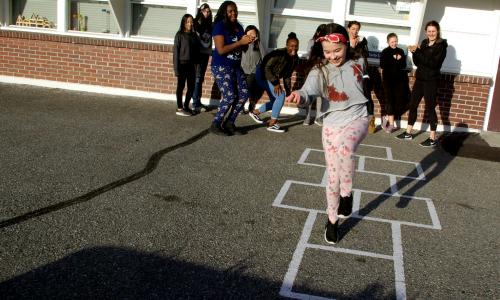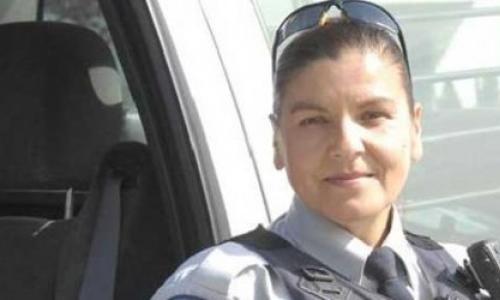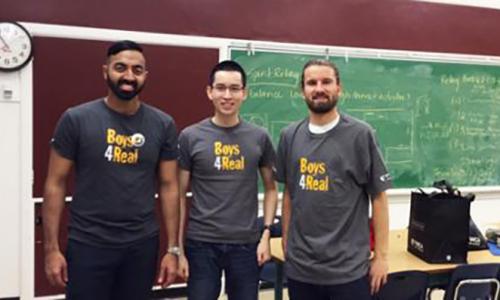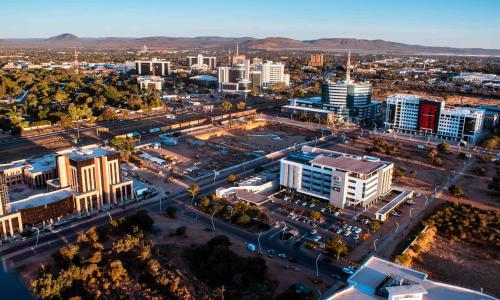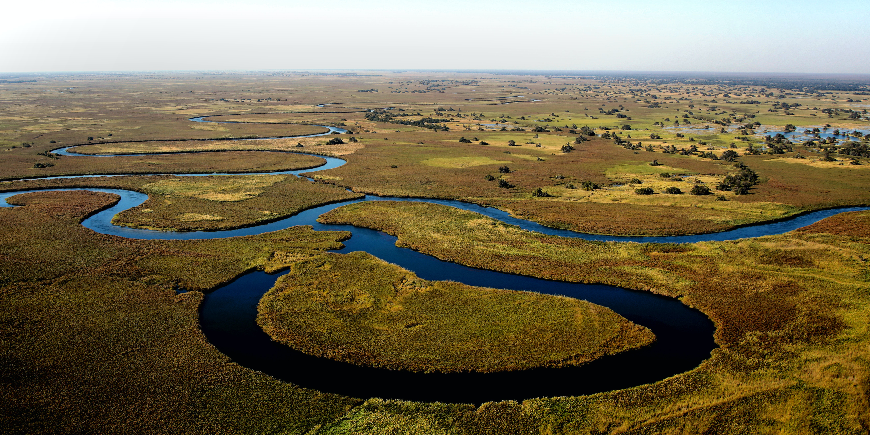
I made it home from The Okavango/Delta with all my limbs (and my life) intact! I spent the weekend touring through the Delta (which is basically the place where a river ends). What is unique about the Okavango Delta is that it is the only delta in the world that ends inland. It is a very narrow (about 3 feet wide in most places, but a little wider in others) waterway that is sided with tall green grass, and is filled with amazing water lilies.
Myself, and a few friends braved the twelve hour drive down the highway (I think it would be better described as a cattle crossing than a highway though). We set out onto the delta early morning on Friday in a makoro, a tiny little wooden boat - okay a boat so small that I was a little scared sitting in it, especially given the proximity to a huge crocodile population (okay, let's be honest - I was really scared). This tiny wooden boat sits so low in the water that you actually feel like you are sitting in the water, and there is only about an inch of the makoro above the water, so balance is key!
We traveled down the delta for about an hour before we stopped to set up camp and avoid the heat (it was about 40 degrees Celsius). We napped under the trees, went on an elephant hunt, and then decided to go swimming to cool off. So not only did I go on a makoro through the delta, I SWAM IN THE DELTA. It was kind of funny; our guide just pulled the makoro over to the side of the delta and hopped out into the water. We all looked at him like he was crazy, thinking there was a safe little pool of water that you could swim in, but that was not the case. Eventually we decided the refreshing water of the delta was worth the possibility of crocs (I'm not really sure why...I guess heat really does make you delusional)!
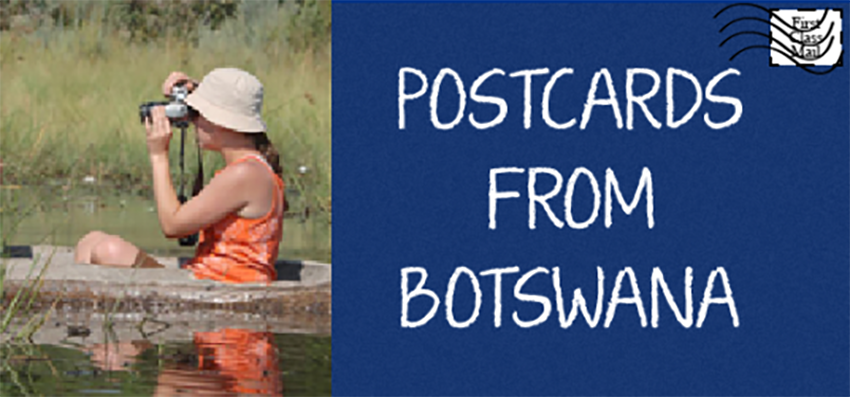
Later in the evening, my friend and I returned from a makoro ride because we were chased by the growl of a hippo that was way to close for comfort. Believe it or not, hippos are one of the leading causes of death in Botswana. Back at the campsite, a small family of vervet monkeys had taken over in search of our food. There was also an elephant that was about 40 feet away. Elephants are such amazing creatures, they are so big and powerful, yet seemingly graceful.
The night was spent under the most star-full sky I have ever seen, and of course we made s'mores over the fire. The night was extremely cold - this is a trait of the desert climate - extremely hot days, and extremely cold nights. We also failed to bring enough water to adequately hydrate ourselves for the two days, so we ended up boiling water from the delta...so if I am desperately ill in a few days, you all know why.
In the morning we went for yet another swim in the delta before we headed back to civilization. As we headed back, we suddenly heard the trumpet of an elephant that was extremely close; actually it was right in front of us. The guides (officially called polers because they propel the makoro forward with a long pole) started back tracking faster than I ever thought makoros could move. I heard this strange crackling noise, so I turned behind me to see that the poler in my makoro had lit the side of the delta of fire. The dead grass burst into flames and started crackling as though someone had lit fire crackers. After a few minutes he doused the fire, and the elephant was long gone. Moral of the story, if you ever cross paths with an elephant, just light a batch of extremely dry grass on fire to scare him away.
On the way back, a little baby croc scooted in front of the makoro in front of mine...and that was the only croc that we saw the whole time (Thank goodness!). We all made it home safe and sound with only a few scratches and probably a few stomach parasites after drinking the delta water.
And that my friends, is the story of camping with elephants, monkeys, hippos, and only one baby croc.
Beyond the Blog
-
Find out more about the Biomedical Physiology and Kinesiology Co-op Program.
-
Find out more about working internationally through the International Co-op Program.









